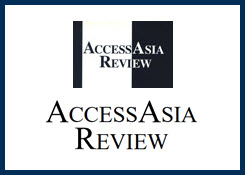From AccessAsia Review Vol. 2, No. 1 (Out of Print)
State of the Field Report
Research on Japanese Security Policy
This essay assesses research on Japanese security policy in light of recent developments in Japan’s post-Cold War defense policies and the U.S.-Japan alliance.
This essay assesses research on Japanese security policy in light of recent developments in Japan’s post-Cold War defense policies and the U.S.-Japan alliance. These developments-including the 1992 peacekeeping operations, the November 1995 revision of Japan’s National Defense Program Outline, and the April 1996 U.S.-Japan Joint Security Declaration-have reinvigorated debate about whether Japan’s self-imposed constraints on militarism can, or indeed should, survive. Major recent studies focus on: Japan’s strategic culture; the Guidelines for Defense Cooperation; the future of U.S. bases; technology cooperation; missile defense and the U.S. nuclear umbrella; and multilateral security. The author reviews divergent views among specialists regarding Japanese rearmament, including: (1) structural realists, who conclude that Japan will continue to rearm; (2) those focusing on political culture, who argue that Japan’s post-war culture of pacifism has taken root; (3) scholars who contend that Japan’s mercantilist focus on technoeconomic strength has not changed; and (4) those who find evidence that a strategic culture of realism is emerging. On the issues of Guidelines, bases, and technology, analysts tend to divide into two groups. Some argue for rapid restructuring in order to achieve symmetry in the U.S.-Japan alliance, while others urge an incremental restructuring of the alliance in order to maintain stability in the region and the security of both nations. Multilateralism appears to be a natural outlet for a more active Japanese security policy, but multilateral security mechanisms in Asia are immature. In conclusion, the authors notes that the majority of analysts see little likelihood that the U.S.-Japan alliance will come apart, and remain cautiously optimistic that Japan will continue to carve out an expanded role in East Asia.


